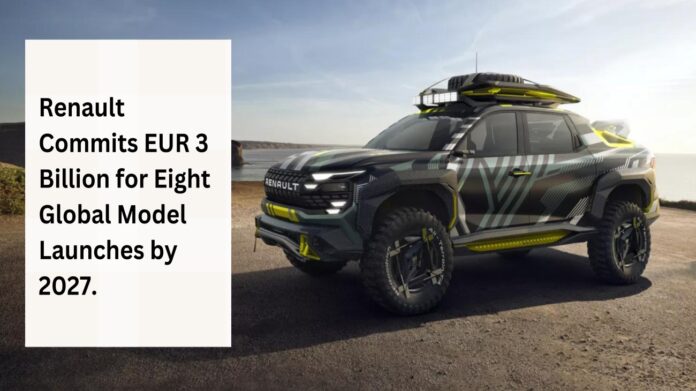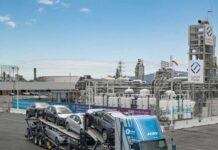
French automaker Renault has unveiled its “International Game Plan 2027” in Rio De Janeiro, Brazil, committing a substantial investment of EUR 3 billion to launch eight new models by 2027, targeting markets outside Europe. This ambitious plan also includes a commitment that one out of every three vehicles Renault sells will have an electric or hybrid version.
The lineup of new models will consist of five C- and D-segment products, along with the B-segment Kardian, set to make its debut in Latin America and Morocco next year. Kardian marks the first of the eight production models in this extensive expansion.
To achieve this product offensive, Renault is adopting two major platforms. The first is a new Renault Group modular platform designed to be ultra-flexible and multi-energy, tailored to four distinct regions: Latin America, North Africa, Turkey, and India.
The second platform, Compact Modular Architecture (CMA), is dedicated to the D and E segments and is based in South Korea through a partnership with Geely, the Chinese multinational automotive company.
Renault’s strategic goal is to double the net revenue per unit sold outside Europe by 2027 compared to the figures from 2019.
Fabrice Cambolive, CEO of Renault, emphasized, “As our product renewal is bearing fruit in Europe, we are now going to make the brand more global and more profitable. Thus, Renault is now going on the offensive outside Europe with eight new vehicle launches between now and 2027, based on a reduced number of platforms, shared across regions and thereby enhancing our synergies.”
A Modular Platform with Global Reach
Renault’s modular platform with international scope will be assembled in four key industrial regions: Latin America, Turkey, Morocco, and India. It features an adaptable and flexible architecture that enables a wide variety of vehicle lengths (between 4 and 5 meters), multiple wheelbase options (ranging from 2.6 to 3 meters), and various rear unit lengths. This platform is designed to accommodate diverse energy sources and powertrains, aiming to enhance efficiency in terms of fuel consumption and reduce CO2 emissions. It supports internal combustion engines (ICE), flex-fuel (E100), LPG, mild hybrid advanced (48V), and full hybrid systems for both front-wheel and four-wheel drives.
Bruno Vanel, VP-Product Performance at Renault, explained, “The proper architecture of the new Renault Group modular platform is extremely flexible and competitive. It will enable us to offer our customers, based all around the world, vehicles offering much value, efficiency, and relevant technologies. This is an advantage to differentiate ourselves from the competition and to embark on a worldwide offensive with a wide variety of vehicles. These cars will feature the new Renault brand identity and will offer powertrain technologies suited to everyone’s needs while enabling customers to consume less energy, provide superior driving pleasures, comfort, and life on board rooted in our brand’s DNA.”
Renault’s comprehensive plan reflects the company’s determination to expand its global presence while embracing electric and hybrid technologies to cater to evolving consumer preferences and environmental considerations.






